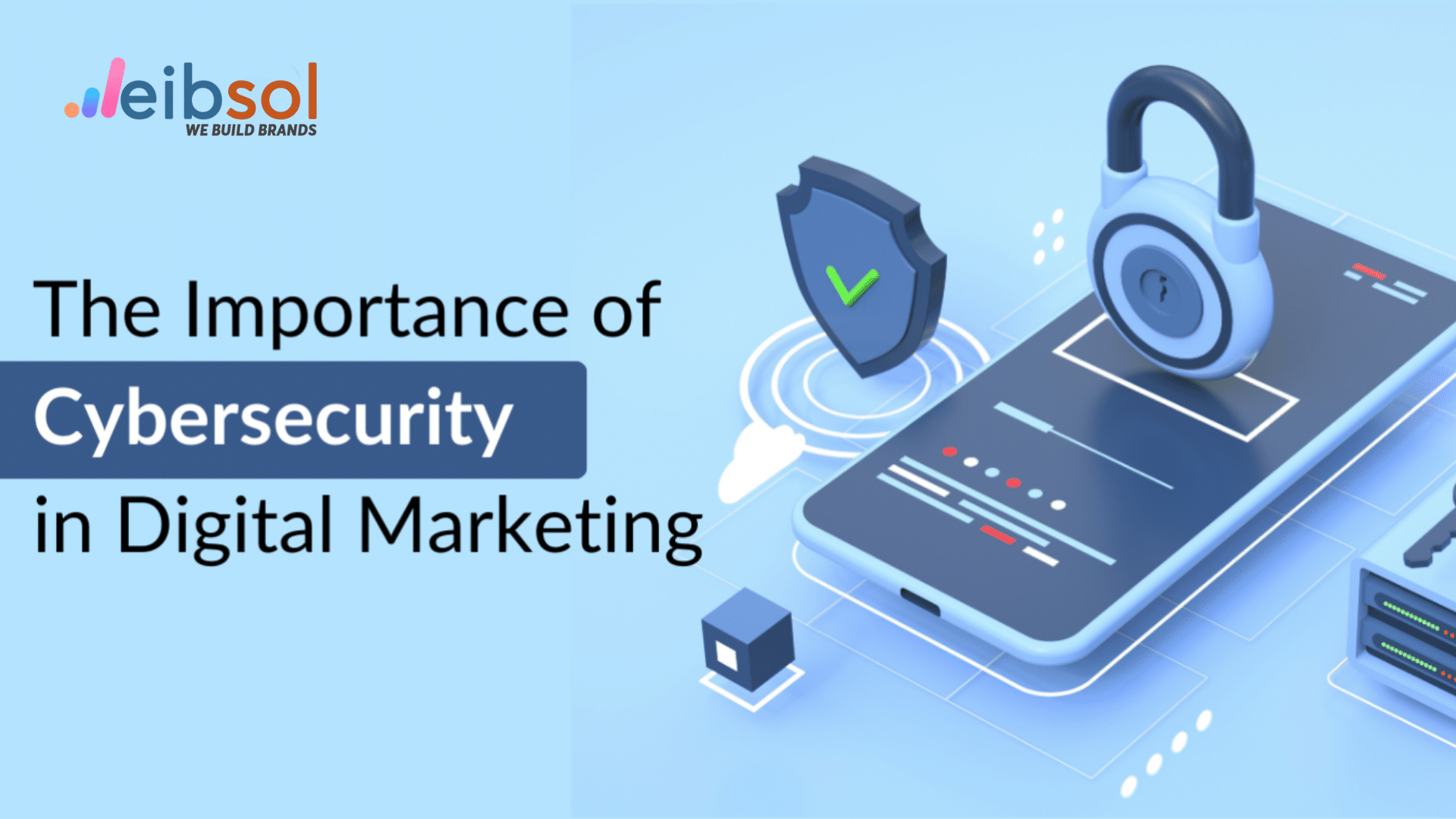Cybersecurity is becoming essential to every effective digital marketing plan in the modern digital world. The relationship between cybersecurity and digital marketing is growing more and more crucial as long as cyber dangers continue to change. This blog will examine cybersecurity’s role in digital marketing going forward, with an emphasis on key tactics, new dangers, and what companies can do to safeguard their online presence.
The Significance of Cybersecurity in Digital Marketing
Data plays an important role in digital marketing, from customer information to campaign metrics. With more data being collected and stored online, the threat of cyber-attacks has never been greater. A single breach can have serious effects, such as loss of customer trust, legal penalties, and financial loss. As a result, implementing strong cybersecurity safeguards into your digital marketing plan is critical.
Emerging Cybersecurity Threats in Digital Marketing
As digital marketing expands, so do the hazards. Below are some of the increasing cybersecurity dangers that marketers should be aware of:
1. Phishing Attacks
Phishing is one of the most popular cyber attacks, in which attackers impersonate trustworthy businesses to lure people into disclosing important information. For digital marketers, this might result in hacked email campaigns, social media accounts, or entire marketing platforms.
2. Data Breaches
As the amount of personal and financial data collected grows, data breaches become increasingly regular and damaging. Ensuring that client data is stored safely and in accordance with standards such as GDPR is critical for any digital marketing campaign.
3. Malware and Ransomware
Malware and ransomware assaults are on the rise, affecting both large and small enterprises. These assaults can deactivate websites, steal important data, and demand significant sums of money to regain access.
The Role of AI in Cybersecurity
AI is having a huge impact on both digital marketing and cybersecurity. While AI may assist automate and optimize marketing campaigns, it can also improve cybersecurity by identifying and responding to threats in real time. AI-powered technologies can examine patterns and detect anomalies that may suggest a cyber assault, adding an extra layer of security to your digital marketing campaigns.
Best Practices for Improving Cybersecurity in Digital Marketing
To defend your digital marketing initiatives from cyber risks, you should apply the following best practices:
1. Regularly update software and systems.
Outdated software is one of the most vulnerable targets for cyber attackers. Ensure that all of your digital marketing tools and systems are frequently updated with the most recent security fixes.
2. Implement strong password policies.
Using weak passwords is a big risk. Use strong, unique passwords for all digital marketing accounts, and consider using multi-factor authentication (MFA) for increased security.
3. Train Your Team on Cybersecurity
Your teammates are your first line of defense. Regularly teach your digital marketing team on the most recent cybersecurity dangers and best practices to ensure they are aware of any issues.
4. Protect Your Data with Encryption
Encryption is an effective tool for protecting sensitive information. Ensure that all client information, campaign data, and other vital data are encrypted both in transit and at rest.
The Future of Cybersecurity in Digital Marketing
As the digital marketing landscape evolves, so will the cybersecurity challenges associated with it. In the future, we should expect more sophisticated cyber threats to target digital marketing campaigns. To be competitive, organizations must constantly change their cybersecurity strategy, utilizing new technologies such as AI and blockchain to protect their data and maintain customer trust.
1. AI-powered cybersecurity solutions
AI is poised to play a larger role in cybersecurity, with improved algorithms capable of detecting and responding to threats faster than ever before. This will be critical as cyber threats become more sophisticated and difficult to identify using standard approaches.
2. Greater emphasis on privacy and data protection.
With legislation such as GDPR and CCPA, the emphasis on data protection will only grow. To avoid costly fines and maintain client trust, digital marketers must guarantee that their data gathering and storage procedures adhere to these standards.
3. The Emergence of Blockchain in Cybersecurity
Blockchain technology provides a viable option for protecting digital transactions and information. In the future, blockchain may be utilized more broadly in digital marketing to protect client data and maintain campaign integrity.
Conclusion
The future of cybersecurity in digital marketing is both promising and daunting. As cyber risks evolve, organizations must be cautious and aggressive in safeguarding their digital marketing campaigns. You can protect your organization and preserve a competitive advantage in the digital economy by employing robust cybersecurity procedures and maintaining up to date on emerging threats.
FAQs
- What are the most common cybersecurity threats in digital marketing?
The most common threats include phishing attacks, data breaches, and malware. - How can AI improve cybersecurity in digital marketing?
AI can help detect and respond to threats in real-time, providing an additional layer of protection. - Why is data encryption important in digital marketing?
Encryption protects sensitive data, ensuring that it remains secure even if accessed by unauthorized individuals. - What role does blockchain play in cybersecurity?
Blockchain offers a secure way to handle digital transactions and data, reducing the risk of cyber attacks. - How can I train my team on cybersecurity best practices?
Regular training sessions, webinars, and workshops can help keep your team informed about the latest cybersecurity threats and best practices.



